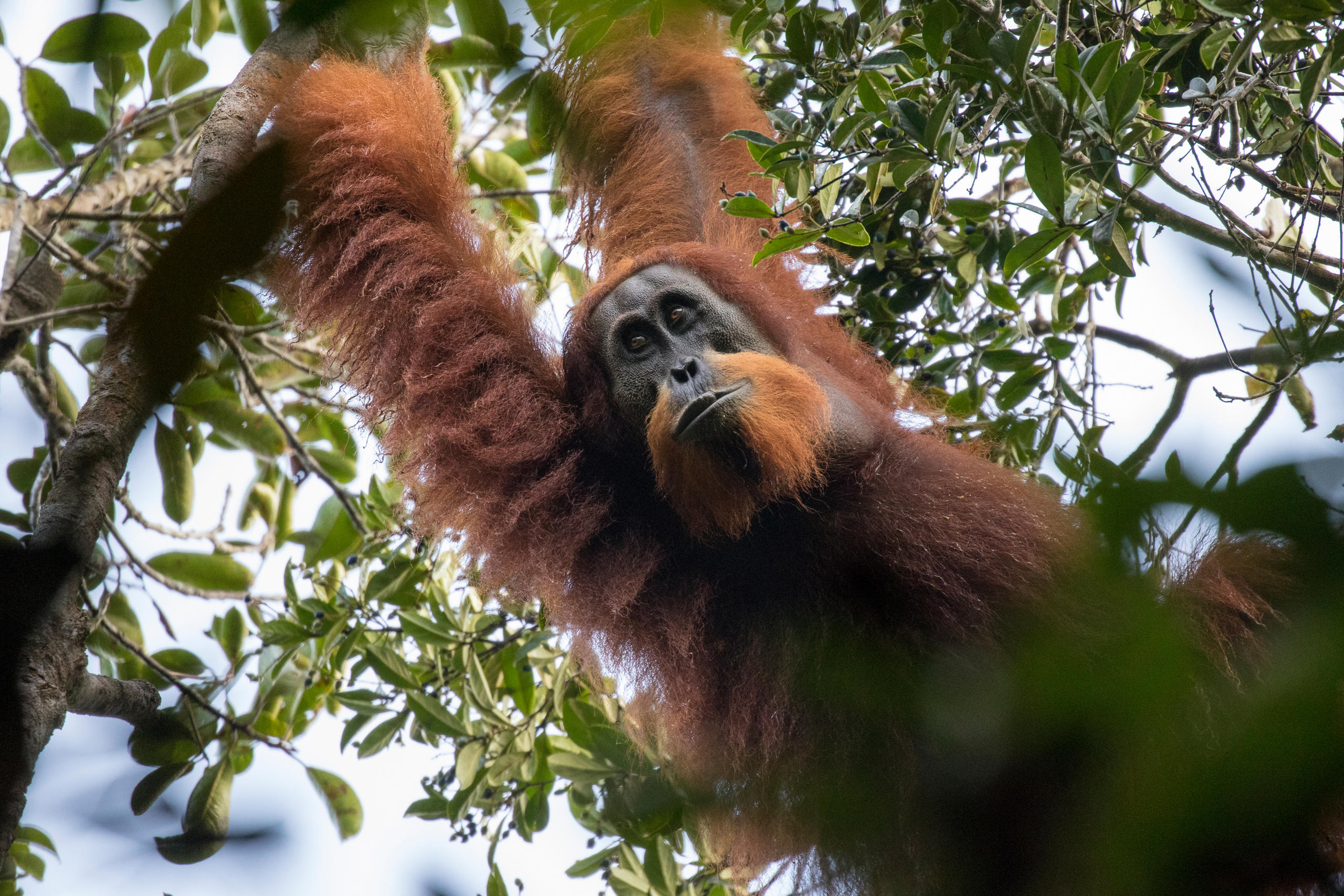
New orangutan species discovered

A team of around 40 researchers, including two from the University of Zurich, have identified a new species of orangutan that lives in northern Sumatra.
The Tapanuli orangutan (Pongo tapanuliensis) will become the eighth great ape species known to science thanks to a team of researchers from around the world, including Switzerland. Only around 800 animals exist as part of an isolated population in the Batang Toru forests in northern Sumatra.
In a paper published in the journal Current Biology on Thursday, scientists demonstrate that the Tapanuli population is distinct from the Sumatran (Pongo abelii) and Bornean (Pongo pygmaeus) species. “Through genetic and genomic analysis we were able to show that the Tapanuli orangutan comes from a very old lineage that has been isolated for 10,000 to 20,000 years,” Michael Krützen of the Department of Anthropology of the University of Zurich told swissinfo.ch.
The isolated population of orangutans was first spotted by Australian researchers around 20 years ago. However, it was during an analysis of a skull from a specimen killed in 2013 when members of the Swiss team – comprising Krützen and Maja Greminger-Mattle – became convinced it was a new species. Certain bone and dental features were found to be quite distinct. The re-classification will bring worldwide attention to what is now the world’s most endangered great ape.

In compliance with the JTI standards
More: SWI swissinfo.ch certified by the Journalism Trust Initiative


























You can find an overview of ongoing debates with our journalists here . Please join us!
If you want to start a conversation about a topic raised in this article or want to report factual errors, email us at english@swissinfo.ch.